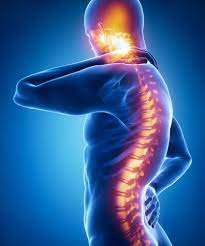A spinal tumor is a growth that forms within your spinal canal or your spine’s bones. A spinal cord tumor, also known as an intradural tumor, is a kind of spinal tumor that grows within the spinal cord or the sheath that surrounds it (dura). A vertebral tumor is a tumor that affects the spine’s bones (vertebrae).
Tumors from other regions of the body can spread (metastasize) to the vertebrae, the network that supports the spinal cord, or, in rare circumstances, the spinal cord itself. Spinal tumors and other types of growth can cause discomfort, neurological difficulties, and, in extreme cases, paralysis. A spinal tumor can be fatal or cause lifelong disability. Surgery, radiation treatment, chemotherapy, or other medicines may be used to treat a spinal tumor.
The spinal cord is a very vital organ as it controls the functioning of the leg. Columbia Asia Hospital Ghaziabad has the best neurosurgeons and the top equipment for the treatment of such tumors. Get more information on Credihealth for the same.
Symptoms of a Spinal Cord Tumor –
Spinal cord tumors can cause a variety of indications and symptoms, particularly as the tumor grows. Tumors might harm your spinal cord, nerve roots, blood vessels, or spine bones. Among the signs and symptoms are:
- Tumor development causes pain at the tumor’s location.
- Back discomfort commonly radiates to other regions of the body.
- Sensitivity to pain, heat, and cold has decreased.
- Deficiency in bowel or bladder function.
- Difficulty walking, which can lead to falls.
- Back discomfort that is worse at night.
The most frequent early sign of a spinal tumor is back discomfort. Pain from your back may also radiate to your hips, legs, feet, or arms, and it may increase despite therapy. The pace of progression of spine cancer varies depending on the kind of tumor.
Back discomfort can be caused by a variety of factors, the most common of which is a tumor. However, because early detection and treatment of spinal tumors are critical, consult your doctor about your back discomfort if:
- It’s consistent and growing.
- It has nothing to do with activities.
- It worsens at night.
- You have a history of cancer and are experiencing new back discomfort.
- You experience additional cancer symptoms, such as nausea, vomiting, or dizziness.
- Muscle weakness or numbness in your legs or arms that worsens with time.
- alterations in bowel or bladder function
If you feel you are experiencing any of the above symptoms, book an appointment for Columbia Asia Ghaziabad through Credihealth immediately.
Treatment at Columbia Asia for Spinal Cord Tumor –
The objective of spinal tumor therapy is to fully remove the tumor, however, this goal is hampered by the possibility of irreversible damage to the spinal cord and surrounding nerves. Doctors must also consider your age and overall health. In selecting a treatment strategy, the sort of tumor and whether it develops from the structures of the spine or spinal canal or has spread to your spine from elsewhere in your body must also be examined. Most spinal tumors can be treated using the following methods:
- Monitoring: Some spinal tumors are detected before symptoms appear, which is common when you are being evaluated for another condition. If small tumors aren’t growing or pressing on neighboring tissues, diligent monitoring may be all that’s needed.
- Surgery: This is often the treatment of choice for cancers that can be removed with little harm to the spinal cord or nerves. Neurosurgeons may now reach tumors that were previously considered to be inaccessible due to newer techniques and equipment. The high-powered microscopes used in microsurgery make it easier to distinguish between cancerous and healthy tissue.
- Radiation therapy: This might be used to remove tumor remnants left over from surgery, to treat inoperable tumors, or to treat tumors if surgery is too risky. Medication can help with some of the side effects of radiation, such as nausea and vomiting. Your radiation therapy plan may be changed from time to time to help decrease the amount of healthy tissue damaged and to improve the treatment’s effectiveness. Modifications might include everything from changing the radiation dosage to using sophisticated technologies like 3-D conformal radiation therapy.
- Chemotherapy: Chemotherapy, a common treatment for many forms of cancer, employs medicines to either eliminate or inhibit the growth of cancer cells. Your doctor can determine if chemotherapy, alone or in combination with radiation treatment, might be beneficial to you. Fatigue, nausea, vomiting, an increased risk of infection, and hair loss are all possible adverse effects.
Columbia Asia Hospital Ghaziabad’s neurosurgeon will help you every step of the way to decide the right treatment for you. They have all the top technology that will help your treatment be successful. Log on to Credihealth to book an appointment now.






